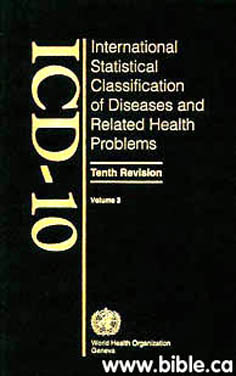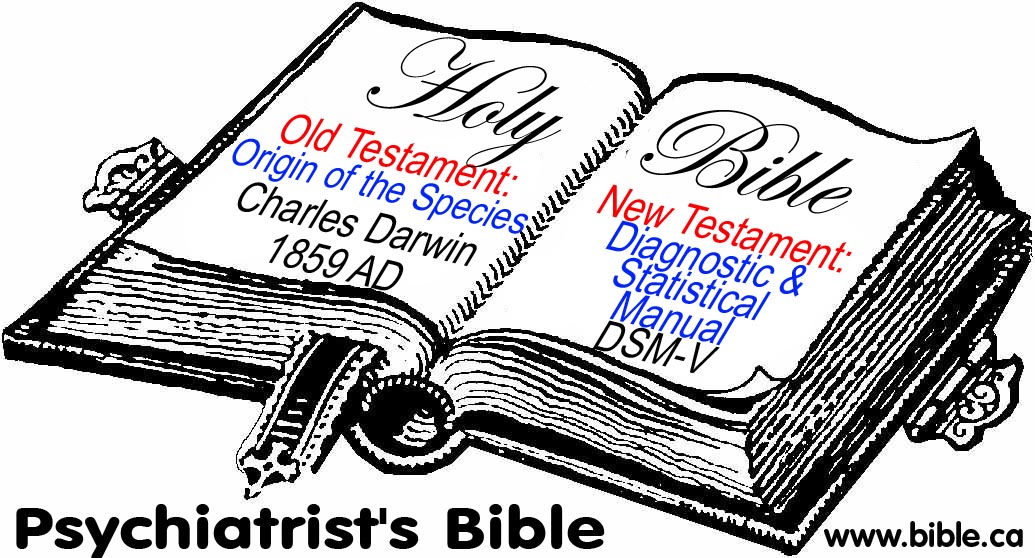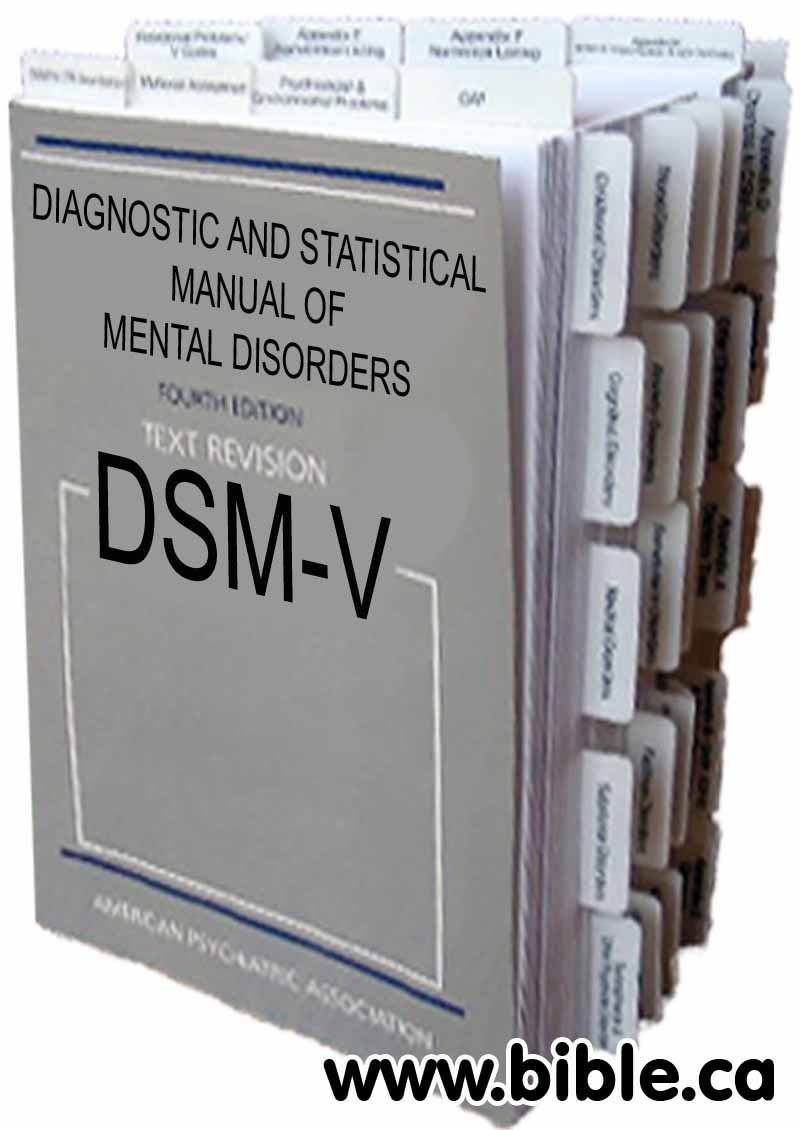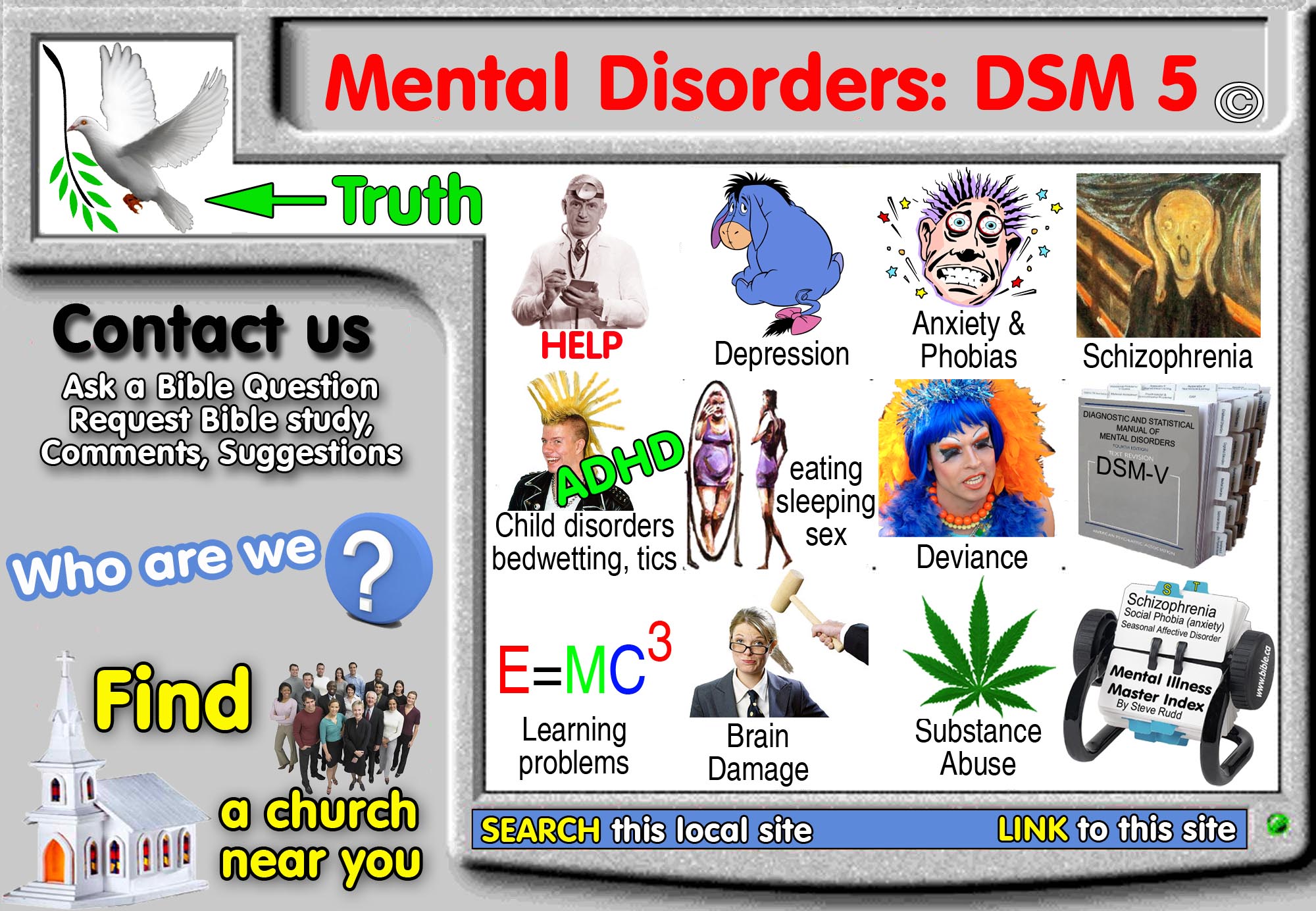DSM-IV, DSM-5, ICD-10: Eating, sleeping and sexual disorders
|
|
|||
|
Eating, sleeping and sexual disorders F50-F59 Behavioral syndromes associated with physiological disturbances and physical factors |
|||
|
|
|||
|
DSM-IV, DSM-5, ICD-10 International Classifications of Diseases Diagnostic and Statistical Manual |
|||
Introduction:
1. Typical of the topic mush of the DSM, we have a "catch all" category that includes sleepwalking, anorexia, insomnia, erectile dysfunction, night mares, nymphomania and gluttony.
2. It is important for everyone to experiences any of the "disorders" in this category to go to their medical doctor and have a full physical checkup including full blood work and endocrine system.
a. Once you have been declared healthy, you can then be certain that your "disorder" is a "behaviour choice". If you don’t like the disorder, have the willpower to change.
b. Your doctor may tell you that you have developed type 2 diabetes and this will give you the willpower to control your overeating and loose those 50 extra pounds and join the gym.
Categorical discussion:
1. Eating disorders:
a. Anorexia (underrating) Bulimia (vomiting) and overeating are behaviour choice and not a diseases.
b. There are two causes for most eating disorders: One is from stuffing too many Twinkies in your mouth and the other from stuffing too few.
c. However, eating disorders are behaviour choices that can kill.
d. In life threatening situations, force feeding a bucket of pureed KFC daily into a person in a 30 day drug induced coma so they don't vomit it up is a good solution.
e. A better solution to bring about a change of will so the person starts eating and doesn't vomit it up.
2. Sleeping disorders:
a. Insomnia: There are a variety of causes of insomnia, but barring substance abuse, caffeine, physical pain etc. it is a behaviour choice caused by anxiety and worry etc.
b. See our main page on Anxiety.
c. Sleep is an important and critical component of being human.
3. Sexual disorders:
a. Most sexual disorders are simply behaviour choices or natural physiological consequences to common life circumstance.
b. Nymphomania: Strangely, men have little interest in curing this behaviour choice.
c. Erectile Dysfunction (ED) has been physically overcome with Viagra, but the underlying causes may include:
i. Lack of physical attraction
ii. Lack of sexual desire
iii. Your man is getting his fun and adventure sex from someone else and you don't interest him.
iv. He may really be suffering Porn-Induced Sexual Dysfunction when he comes to bed with you.
v. Maybe he had sex an hour or two before you took him to bed.
vi. No worry. Just pop a Viagra into his mouth, wait ten minutes. Cured! Enjoy!
vii. “But because of immoralities, each man is to have his own wife, and each woman is to have her own husband. The husband must fulfill his duty to his wife, and likewise also the wife to her husband. The wife does not have authority over her own body, but the husband does; and likewise also the husband does not have authority over his own body, but the wife does.” (1 Corinthians 7:2–4)
Conclusion:
1. Depression is a sinful behaviour choice and not a disease or medical condition.
2. Treating depression with drugs is like smashing a computer because of a software virus.
3. Research papers:
a. See our main page on Depression.
e. See our main page on Anxiety
4. A depressed Christian is an oxymoron like "jumbo shrimp". Christians, by nature are to rejoice and not be depressed or sad.
|
DSM-IV, DSM-5, ICD-10: Eating, sleeping and sexual disorders |
F50-F59 Behavioral syndromes associated with physiological disturbances and physical factors
F50 Eating disorders
F50.0 Anorexia nervosa
F50.1 Atypical anorexia nervosa
F50.2 Bulimia nervosa
F50.3 Atypical bulimia nervosa
F50.4 Overeating associated with other psychological disturbances
F50.5 Vomiting associated with other psychological disturbances
F50.8 Other eating disorders
F50.9 Eating disorder, unspecified
F51 Nonorganic sleep disorders
F51.0 Nonorganic insomnia
F51.1 Nonorganic hypersomnia
F51.2 Nonorganic disorder of the sleep-wake schedule
F51.3 Sleepwalking [somnambulism]
F51.4 Sleep terrors [night terrors]
F51.5 Nightmares
F51.8 Other nonorganic sleep disorders
F51.9 Nonorganic sleep disorder, unspecified
F52 Sexual dysfunction, not caused by organic disorder or disease
F52.0 Lack or loss of sexual desire
F52.1 Sexual aversion and lack of sexual enjoyment
F52.2 Failure of genital response
F52.3 Orgasmic dysfunction
F52.4 Premature ejaculation
F52.5 Nonorganic vaginismus
F52.6 Nonorganic dyspareunia
F52.7 Excessive sexual drive
F52.8 Other sexual dysfunction, not caused by organic disorder or disease
F52.9 Unspecified sexual dysfunction, not caused by organic disorder or disease
F53 Mental and behavioral disorders associated with the puerperium, not elsewhere classified
F53.0 Mild mental and behavioral disorders associated with the puerperium, not elsewhere classified
F53.1 Severe mental and behavioral disorders associated with the puerperium, not elsewhere classified
F53.8 Other mental and behavioral disorders associated with the puerperium, not elsewhere classified
F53.9 Puerperal mental disorder, unspecified
F54 Psychological and behavioral factors associated with disorders or diseases classified elsewhere
F55 Abuse of non-dependence-producing substances
F59 Unspecified behavioral syndromes associated with physiological disturbances and physical factors
By Steve Rudd: Contact the author for comments, input or corrections.
Send us your story about your experience with modern Psychiatry




